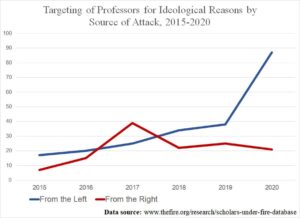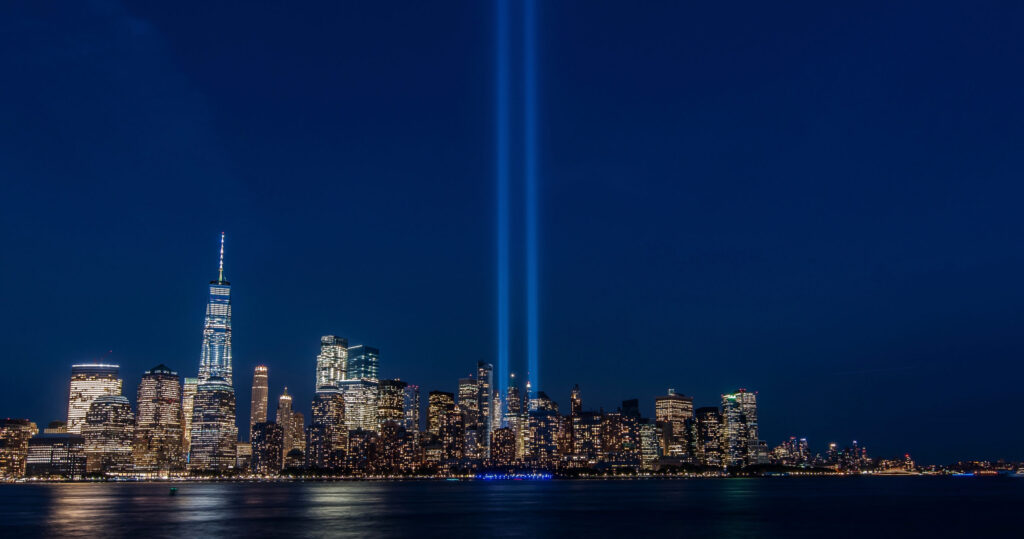Teen Vogue commemorates attack with ‘academic freedom’ propaganda
September 8, 2021
The oldest teenagers in America were born in 2001. They have no memory of September 11 that year and, for the most part, few memories of the entire decade in which it occurred.
But Teen Vogue, targeting teens’ lack of context, marked the 20th anniversary of that day with an article headlined, “Academic Freedom Came Under Attack in the Post-9/11 United States,” by University of Massachusetts at Amherst history professor Asheesh Kapur Siddique.
Why would Teen Vogue frame 9/11 in terms of “a tragic repetition of a dark pattern,” wherein the American right has “repeatedly seized upon the rhetoric of war to manufacture moral panics that trample on academic freedom”?
This is what Teen Vogue and with other youth-centered publications do. Peppered among celebrity gossip and beauty tips is propaganda to persuade teens that progressive ideology is simply what they should believe. Just so: Teens must keep an eye out for QAnon’s influence over their parents, “the Pledge of Allegiance has always been a creepy loyalty oath,” and 9/11 was most significant as an excuse for conservatives to crack down on nice Ivy League college professors.
Nicholas De Genova of Columbia University, Siddique’s poster child for put-upon professors, “expressed his wish that U.S. forces in Iraq suffer ‘a million Mogadishus’,” according to Siddique. That is an antiseptic way to skirt past the graphic images of Americans’ naked bodies being dragged through the streets, which were seared into the national memory. When De Genova’s comments predictably generated controversy, he sought to clarify that what he really wanted was “something more like another Vietnam” — “a stunning defeat for U.S. imperialism [and] a victory for the cause of human self-determination.”
A leading American university should not punish a professor for saying such things, but this is not “pursuing ideas” in an academic sense. It is wishing harm to your country and the brave men and women who volunteer to serve it.
Is Siddique just an absolutist for academic freedom, which he calls the “bedrock principle” of democracy? His characterization that “trampling” this freedom is mainly a conservative practice suggests otherwise. Siddique has nothing to say about people in his profession like former University of Miami Law School professor Dan Ravicher, who filed a federal complaint claiming he was forced out for tweeting support for former President Donald Trump.
In 2019, Moreno Valley College sociology professor Eric Thompson was still fighting for access to the classroom after a court ruled that he had been wrongfully terminated in 2017, allegedly over the way he handled the issue of same-sex marriage in his classes. Also in 2017, Bret Weinstein, then a biology professor at Evergreen State College, sued his employer, which settled for a half-million dollars, claiming it allowed a hostile environment to continue after he challenged “a day of absence” when white students and faculty were supposed to leave campus.
Last summer, University of North Carolina at Wilmington professor Mike Adams took his own life after years of fighting back against his employer’s mistreatment of him based on his opinion writing and social media comments.
Siddique mentions none of these in his Teen Vogue article. For that matter, he ignores a finding by the Foundation for Individual Rights in Education that 74% of 426 professors targeted for their work or speech received some form of punishment. If academic freedom is such a bedrock principle for Siddique, why would he avoid this obvious support for his argument? Because the foundation found that 62% of the incidents were attacks from the left, and that is contrary to the story he wants Teen Vogue readers to believe.
As shown in the following chart created using the foundation’s data, the trend of attacks on academic freedom is skewing more and more for the benefit of progressives and the detriment of conservatives.

If Siddique acknowledged that De Genova’s comments were both extreme and an example of activism rather than scholarship, his young readers might not come to the conclusion that he desires. And were he to admit that conservative professors are more likely to be targeted than progressive ones, he would find it difficult to justify recasting 9/11 on its 20th anniversary as if it were primarily an excuse for a crackdown against the Left.
